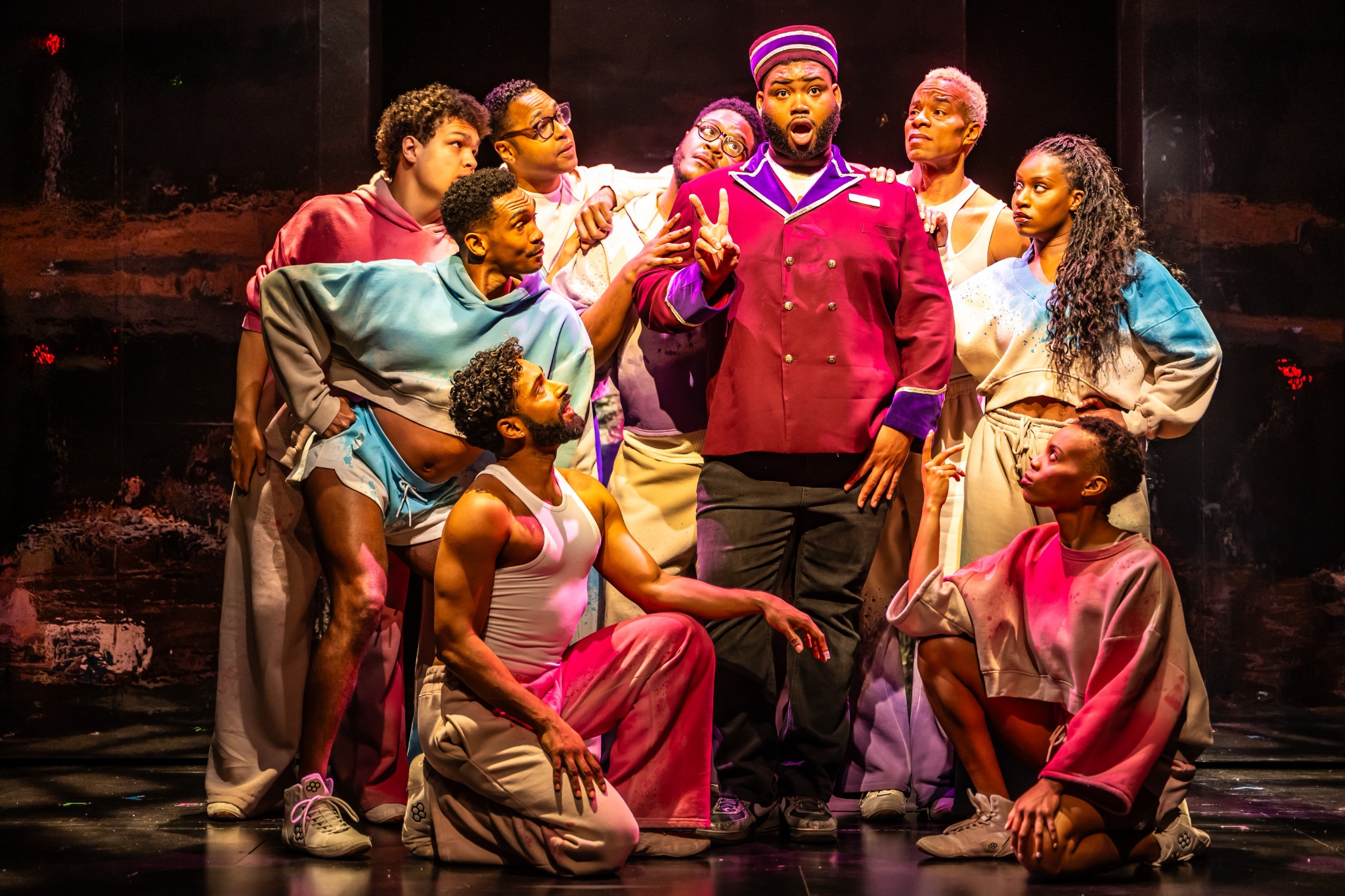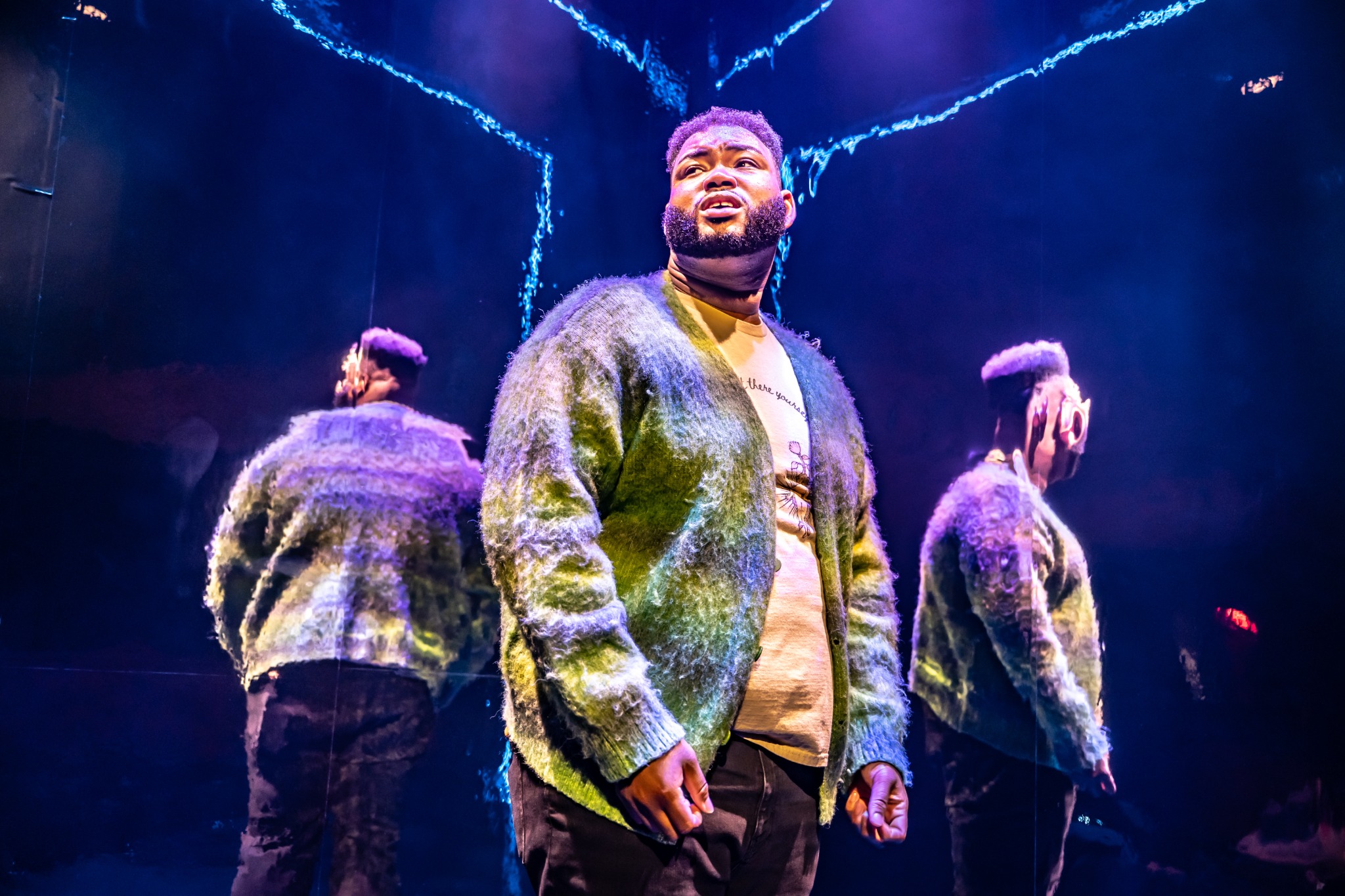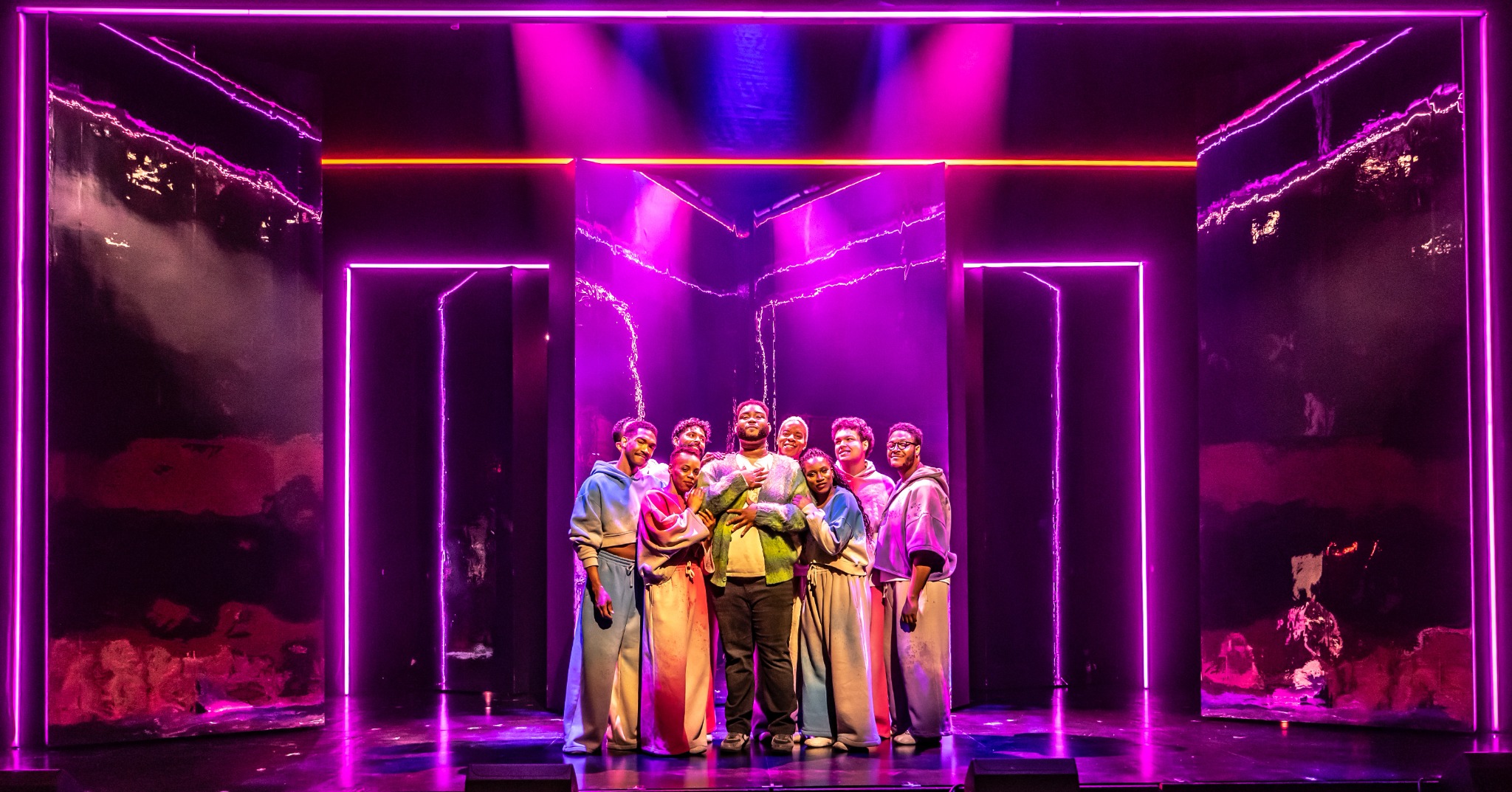Review: A Strange Loop (Soulpepper Theatre / Crow’s Theatre / TO Live / The Musical Stage Company)
Tyler Perry gets roasted, Harriet Tubman weighs in, and Usher’s thoughts sing backup in A Strange Loop—a musical that’s radically honest and cuttingly funny. A winner of the Pulitzer Prize for Drama and the 2022 Tony Award for Best Musical, Michael R. Jackson’s work arrives in Toronto in a co-production from Soulpepper, The Musical Stage Company, Crow’s theatre and TO Live. And this Toronto staging, directed by Ray Hogg,, leans right into the show’s emotional, cultural, and theatrical density.
At its core, A Strange Loop follows Usher (Malachi McCaskill), a large, Black, queer musical theatre writer caught in a mental feedback loop. He is trying to write a musical about trying to write a musical. Around him swirls his ‘Thoughts,’ played by six figures with names like ‘Daily Self-Loathing’ and ‘Sexual Ambivalence’. These thoughts are played by an incredible ensemble (Sierra Holder, Amaka Umeh, Charlie Clark, David Andrew Reid, Nathanael Judah, and Marcus Nance at the show I attended) and they embody Usher’s most punishing insecurities, intrusive memories, and deeply internalized cultural expectations. Together, they shift between different personas: family members, partners, and Black cultural icons, always keeping Usher in a state of mental chaos and existential dread.
The show begins with a continual chime that rings through the theatre for a full thirty minutes before the lights go down. It’s subtle at first, then persistent—just enough to make you start questioning it. Sitting in the audience, I kept wondering what it was. It wasn’t the usual five- or ten-minute warning we expect from a traditional pre-show cue. Instead, the sound becomes something else entirely: The first note of Usher’s mental noise as he works front-of-house at The Lion King on Broadway. It sets the tone for what follows, an unrelenting loop of self-doubt and cultural pressure.
From that opening chime onward, A Strange Loop launches into a whirlwind of internal confrontations, some hilarious, others quietly devastating, between Usher and the world inside of his head. There’s the biting satire of “Tyler Perry Writes Real Life,” which dives into the complicated legacy of Perry’s work. He is beloved by many, crucial in offering visibility and employment for Black artists, but also critiqued for reinforcing stereotypes and moralizing narratives.
Then there’s “AIDS Is God’s Punishment,” a horrifyingly catchy gospel number that stages the internalized homophobia Usher has absorbed from church and family. In one particularly sharp moment, his parents plead, “Why would you write us like this?”—a line that speaks directly to the show’s looping, meta-theatrical form.
At one point, Usher faces down figures like Harriet Tubman, Marcus Garvey, Zora Neale Hurston, and Whitney Houston in a surreal reckoning with legacy and race. The show’s genius lies in how it pushes these scenes to the edge of absurdity, only to land somewhere deeply honest and painfully familiar.
In this Toronto staging, Ray Hogg’s direction flows with confidence. The choreography by Rodney Diverlus is smart and stylistically varied, drawing on Black vernacular movement. Together, the two keep the energy high and the tone playful, even when the material cuts deep.
The lighting (Michelle Ramsay) and set design (Brian Dudkiewicz) reflect the fractured, recursive nature of Usher’s mind. Five vertical bars of light shoot bursts of colour across the stage, reinforcing the show’s looping structure as they stretch toward the back. (From my seat on the side of the theatre, they were harder to see clearly—a minor design challenge in an otherwise thoughtful setup.) The main set pieces are large black walls that rotate and shift throughout the show, transforming into different spaces, including Usher’s New York City apartment.
Despite a few hiccups, like a late start and moments when the sound mix made it difficult to hear the performers over the music, the cast delivered across the board. Malachi McCaskill grounds the production with a performance that balances vulnerability with a sweet, understated charm. The ensemble is packed with strong singers and actors, each of whom could carry the show on their own. (They are that good.) I loved that the cast created a tangible sense of connection with the audience throughout; through direct eye contact, sly glances, and moments of walking through the aisles.
“The master’s tools will never dismantle the master’s house.” That quote from Audre Lorde appears in the show, and it lands like a challenge, as much to Usher as to the audience. A Strange Loop doesn’t try to resolve the contradictions of identity, desire, or representation. Instead, it embraces them, circling, spiraling, pulling itself apart and piecing itself back together in search of something honest. It’s not tidy or comforting, but it is self-critical and honest. Check it out!
A Strange Loop, presented in part by Soulpepper, The Musical Stage Company, Crow’s theatre and TO Live is playing at Young Centre for the Performing Arts (50 Tank House Lane, Distillery Historic District Toronto, ON M5A 3C4) until June 1st, 2025. Tickets start at $65. Tickets can be purchased online here.
Technical warning: Theatrical haze/fog and strobing/flashing lights
Content warning: A Strange Loop deals with sensitive and Mature Themes and is recommended for audiences ages 16+. It includes a character’s vivid perceptions of racism, homophobia, HIV stigmatization, self-hatred, and depression. It also contains suggestive nudity and explicit language (inclusive of racial slang that may be offensive to some audience members).
Photos by Dahlia Katz.
Written by Deanne Kearney | DeanneKearney.com @deannekearney



0 Comments Add a Comment?